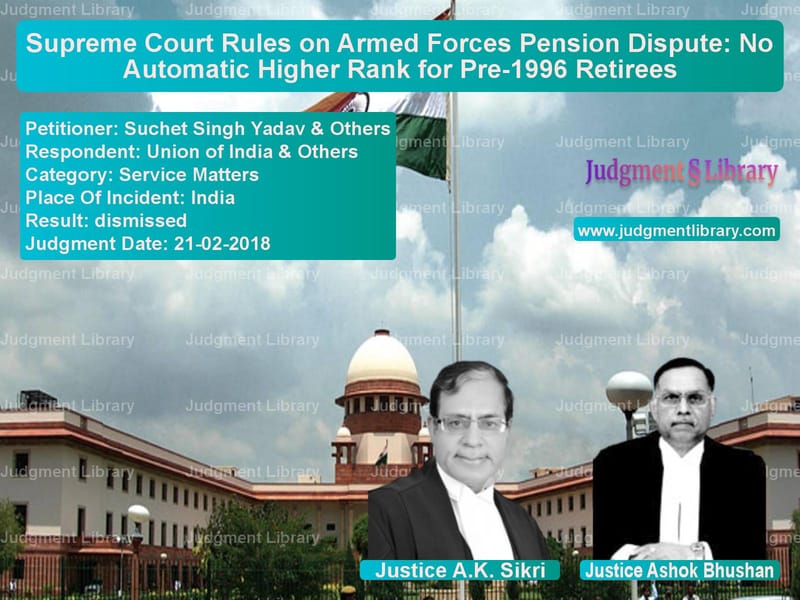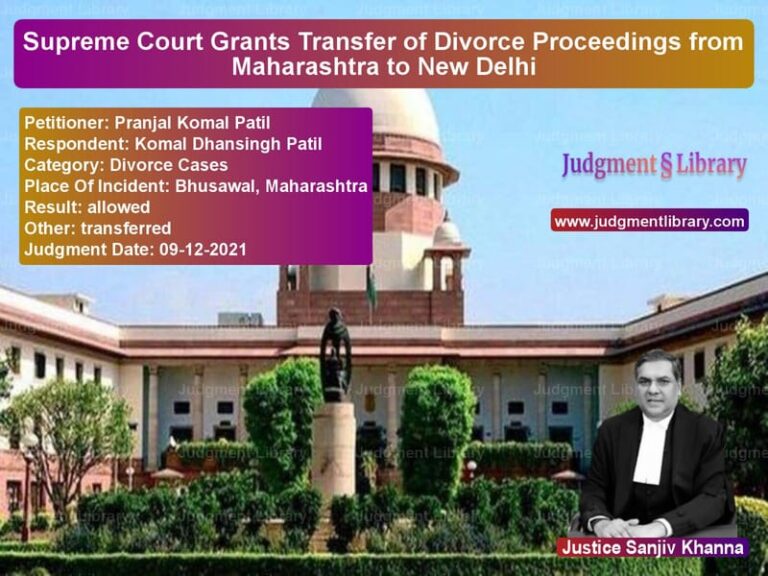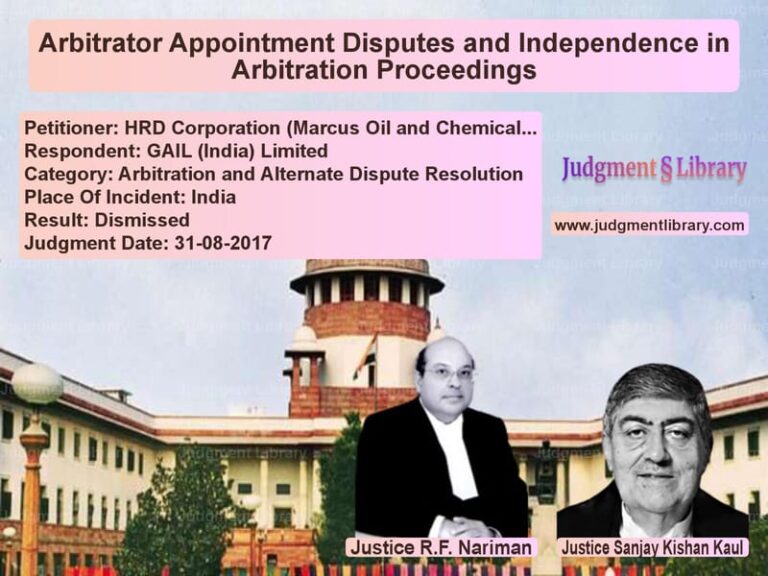Supreme Court Rules on Armed Forces Pension Dispute: No Automatic Higher Rank for Pre-1996 Retirees
The Supreme Court of India recently decided a crucial case in Suchet Singh Yadav & Others vs. Union of India & Others, addressing the pensionary benefits of commissioned officers in the Indian Armed Forces who retired before January 1, 1996. The case revolved around whether these retired officers were entitled to a higher pay scale based on government orders issued after the implementation of the Fifth Pay Commission. The Court ruled in favor of the government, clarifying that such benefits applied only to officers in service as of January 1, 1996, and not to pre-1996 retirees.
Background of the Case
The petitioners, including Suchet Singh Yadav and other retired officers from the Army, Air Force, and Navy, challenged the government’s refusal to grant them a higher pension by upgrading their pay scale to that of the next rank upon retirement. Their claim was based on a Ministry of Defence order dated November 21, 1997, which upgraded the pay scale of officers holding the rank of Major and equivalent.
The Armed Forces Tribunal (AFT) issued divergent rulings in multiple cases, leading to conflicting decisions. Some petitions were dismissed, while others succeeded. As a result, both the retired officers and the Union of India approached the Supreme Court for clarity.
Petitioners’ Arguments
The petitioners argued:
- The government order dated November 21, 1997, granted the benefit of pay scale revision to all officers who held the rank of Major or equivalent before January 1, 1996.
- Discrimination between pre-1996 and post-1996 retirees violated the principle of equality, as pensioners should be treated as a homogeneous class.
- Several officers had completed 21 years of service before January 1, 1996, making them eligible for the benefits granted to serving officers.
- The Armed Forces Tribunal had ruled in favor of similar claims in Maj. K.G. Thomas vs. Union of India, and the Supreme Court upheld that decision, setting a precedent.
Respondents’ Arguments
The Union of India defended its position, stating:
- The pay scale revision applied only to officers serving on January 1, 1996, and not to those who had already retired.
- For pre-1996 retirees, a separate order dated June 7, 1999, revised pensions based on the last held rank, but it did not grant a higher pay scale.
- The government’s decision in Maj. K.G. Thomas was specific to that case and should not be considered a general precedent.
- Extending the benefit to pre-1996 retirees would create an unjust financial burden on the exchequer.
Supreme Court’s Analysis and Judgment
Interpretation of the November 21, 1997, Order
The Court analyzed the language of the government’s order and found that it was explicitly intended for officers in service as of January 1, 1996. It ruled:
“The word ‘pay scale’ presupposes that the officers were still in service on the effective date. The provision granting a higher pay scale was meant for officers who were actively serving on January 1, 1996, and not for those who had retired before that date.”
Rejection of Discrimination Argument
The Court dismissed the argument that denying higher pay scales to pre-1996 retirees constituted discrimination, stating:
“Pensioners for the purpose of pension benefits form a class, and classification based on the date of retirement is not arbitrary if it has a rational basis.”
The Court cited Col. B.J. Akkara vs. Government of India, which upheld different pension formulas for pre- and post-1996 retirees.
Clarification on the Maj. K.G. Thomas Case
While the petitioners relied on the Maj. K.G. Thomas judgment, the Supreme Court clarified that its earlier ruling in that case was specific to the facts of that petition and was not intended to set a binding precedent for all similar cases.
Final Ruling
The Supreme Court dismissed the appeals filed by the retired officers and upheld the government’s stance, ruling:
“The Armed Forces Tribunal’s orders granting benefits to pre-1996 retirees are set aside. The government’s policy of restricting higher pay scales to officers in service as of January 1, 1996, is legally valid.”
Key Takeaways from the Judgment
- Applicability of Pay Scale Revisions: The ruling confirms that pay scale revisions do not automatically apply to retired personnel unless specifically stated.
- Pensioner Classification is Legal: The government can classify pensioners based on retirement date, as long as it has a rational basis.
- Limits of Precedents: The Court clarified that past judgments favoring certain claimants do not always establish a universal precedent.
- Financial Prudence in Policy Decisions: The ruling reaffirms that extending benefits retroactively to all retirees could impose an unjust financial burden on the state.
Conclusion
The Supreme Court’s decision in Suchet Singh Yadav & Others vs. Union of India & Others resolves a long-standing dispute regarding pension revisions for armed forces officers. By clarifying that pay scale upgrades apply only to serving officers as of January 1, 1996, the judgment prevents financial unpredictability in government expenditure and upholds the principle of rational classification in pension benefits.
While the ruling may be disappointing to some retired officers, it reinforces the importance of clear policy guidelines and ensures that judicial interpretations align with legislative intent.
Petitioner Name: Suchet Singh Yadav & OthersRespondent Name: Union of India & OthersJudgment By: Justice A.K. Sikri, Justice Ashok BhushanJudgment Date: 21-02-2018
Don’t miss out on the full details! Download the complete judgment in PDF format below and gain valuable insights instantly!
Download Judgment: Suchet Singh Yadav & vs Union of India & Oth Supreme Court of India Judgment Dated 21-02-2018.pdf
Direct Downlaod Judgment: Direct downlaod this Judgment
See all petitions in Pension and Gratuity
See all petitions in Public Sector Employees
See all petitions in Employment Disputes
See all petitions in Judgment by A.K. Sikri
See all petitions in Judgment by Ashok Bhushan
See all petitions in dismissed
See all petitions in supreme court of India judgments February 2018
See all petitions in 2018 judgments
See all posts in Service Matters Category
See all allowed petitions in Service Matters Category
See all Dismissed petitions in Service Matters Category
See all partially allowed petitions in Service Matters Category







